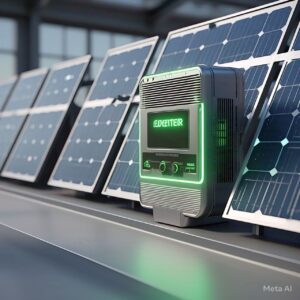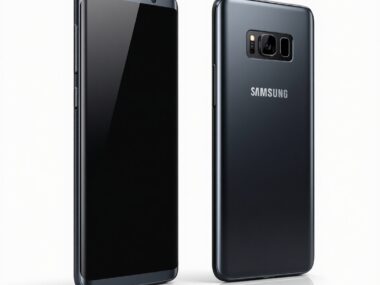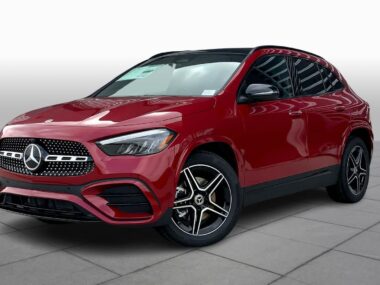Hey there! If you’re wondering, “How much is an inverter in Nigeria?” you’re in the right spot. Inverters—those nifty gadgets that turn battery juice into usable power—are lifesavers in Nigeria’s blackout-prone world. With the grid acting like a moody friend who’s never there when you need them, inverters keep your lights on and your fridge humming. In 2025, prices swing from ₦20,000 for tiny units to over ₦2 million for solar-powered beasts. Let’s unpack the costs, types, and tips to snag the perfect one for your home or hustle.
Why Inverters Are Nigeria’s Power MVPs
Let’s be real—Nigeria’s electricity game is shaky. One minute you’re binge-watching your favorite show, the next you’re in the dark, cursing NEPA. That’s where inverters swoop in, flipping DC power from batteries to AC magic for your gadgets. They’re quieter than generators, cheaper to run long-term, and don’t choke the air with fumes. From Lagos to Kano, folks lean on them to keep life moving. Solar inverters? Even better—pair them with panels, and you’re basically off-grid royalty. Prices vary, so let’s dig into the nitty-gritty.

Inverter Prices in Nigeria: Small to Big Spenders
How much cash are we talking? It depends on size and power. Here’s the lowdown:
- Small Inverters (1kVA–3kVA): Perfect for basics—lights, fans, maybe a small fridge. You’ll shell out ₦50,000–₦150,000.
- Medium Inverters (3kVA–5kVA): Got a bigger house or small shop? These run ₦150,000–₦350,000, handling more gear.
- Big Dogs (5kVA+): Powering ACs, washers, or a whole office? Prices climb from ₦350,000 to ₦1 million+.
I grabbed a 2kVA unit for ₦120,000 on Jumia.ng last month—keeps my essentials humming. Prices shift with brands and features, so shop smart!
You can also read How Much Is Solar Inverter in Nigeria? A Comprehensive Guide to Prices and Options in 2025
Types of Inverters: Pick Your Flavor
Not all inverters are twins—type matters. Check these out:
- Pure Sine Wave: Smooth, clean power for fancy stuff like laptops or TVs. Starts at ₦100,000, skyrockets past ₦1 million for heavyweights.
- Modified Sine Wave: Rougher juice, fine for lights and fans. Runs ₦40,000–₦200,000—budget-friendly but picky with sensitive gear.
- Square Wave: Rare and cheap, good for tiny loads. Kicks off at ₦20,000—don’t expect miracles.
Solar inverters jack up the tab—think ₦150,000 to ₦2 million+—but they’re gold if you’re chasing sun-powered freedom. What’s your vibe—basic or high-tech?
You can also read How Much Is a Unit of Electricity in Nigeria? A Detailed Guide for 2025
What Drives Inverter Costs in Nigeria?
Prices aren’t random—they dance to a few tunes:
- Capacity: More juice, more naira. A 10kVA beast costs way more than a 1kVA baby.
- Brand: Big names like Luminous or Victron sting harder—₦80,000–₦1 million—versus local no-names at ₦30,000–₦300,000.
- Type: Solar setups trump regular ones in price—tech ain’t cheap.
- Exchange Rate: Naira’s 2025 rollercoaster bumps import costs—thanks, dollar!
A vendor in Ikeja told me prices hop monthly with forex rates. Wild, huh?
Hidden Costs: Beyond the Tag
The sticker price? Just the opener. Watch these extras:
- Installation: Basic setup’s ₦30,000–₦100,000. Solar? Add panels and wiring—ouch!
- Maintenance: Batteries die—replacements run ₦20,000–₦100,000 every few years.
- Extras: Cables, mounts, or a fancy charge controller pile on ₦10,000–₦50,000.
I skipped pro installation once—DIY saved cash but fried my nerves. Worth it?
Where to Buy Inverters in Nigeria
Ready to shop? Here’s your map:
- Online: Jumia.ng or Jiji.ng—doorstep delivery, sweet deals.
- Markets: Lagos’ Alaba or Abuja’s Wuse—haggle like a champ.
- Specialty Stores: Solar shops in Lekki or Port Harcourt—pricey but legit.
Pro tip: Check warranties—1–5 years is standard. I got burned by a no-name brand once—lesson learned!
Are Inverters Worth It in 2025?
Let’s weigh it. Pros: Steady power, no generator racket, cheaper than fuel bills. Cons: Upfront cost bites, and batteries need love. Small units shine for apartments; solar setups rule for big homes. With fuel prices spiking in 2025, inverters feel like a steal. Ever had NEPA ditch you mid-movie? That’s why I’m team inverter!
Conclusion: Power Up Your Life
So, how much is an inverter in Nigeria? From ₦20,000 for a basic box to ₦2 million for solar royalty, it’s your call. Nigeria’s 2025 power woes make inverters a must—pick one that fits your needs and wallet. Shop smart, factor in extras, and say goodbye to blackouts. Ready to flip the switch? What’s your power plan?
FAQs
What’s the cheapest inverter I can get?
A small square wave unit starts at ₦20,000—check Jiji.ng!
Do I need a solar inverter?
Only if you want sun-powered juice—starts at ₦150,000.
How long do inverter batteries last?
About 2–5 years—budget ₦20,000–₦100,000 for swaps.
Where’s the best deal on inverters?
Jumia.ng or Alaba market—haggle hard!
Can an inverter power my AC?
Yes, but grab a 5kVA+ model—costs ₦350,000 and up.

